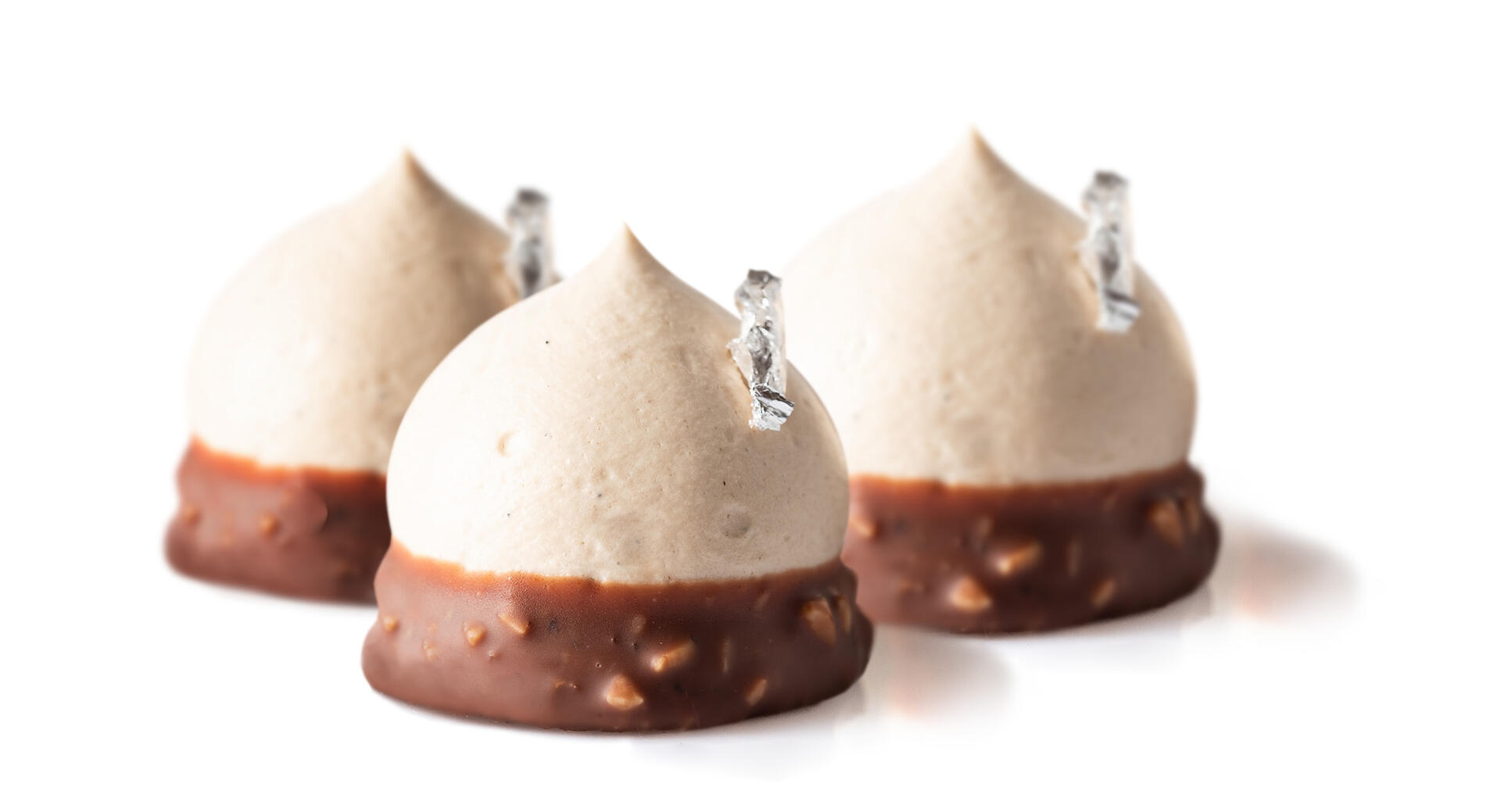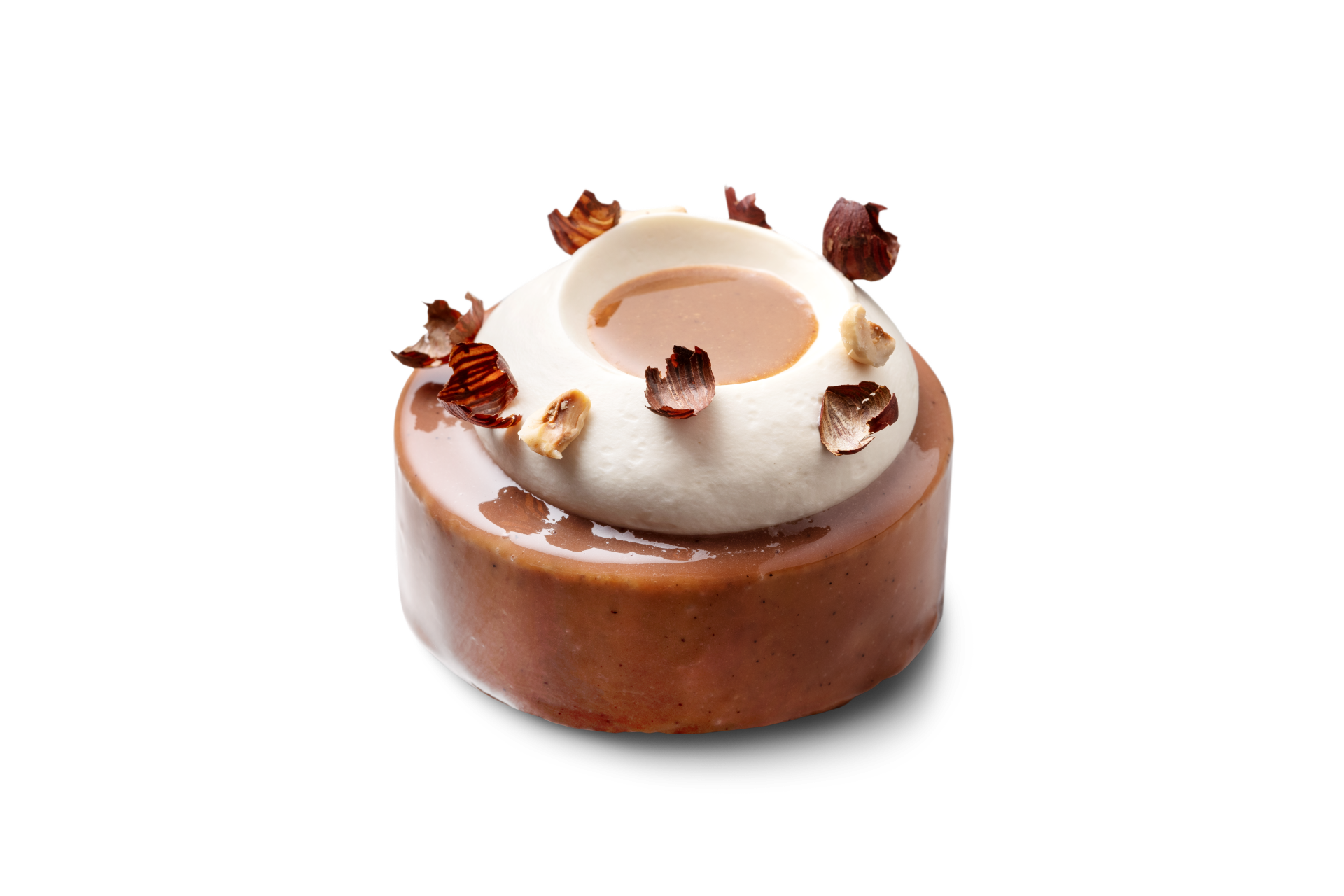Adapt: vegan pastry according to Australian chef Richard Hawke
Vegan pastries are an inevitable trend, just ask expert Richard Hawke. He believes that vegan patisserie is becoming the most natural thing in the world and he just might be right. That is why he wrote Adapt. A book about gluten-free, lactose-free and vegan patisserie. A book he believes should become the guideline for every modern (pastry) chef.

From Australia to France, Morocco and Slovakia
Debic patisserie advisor Bruno Van Vaerenberg spoke to Richard Hawke about his book Adapt. They met in Hawke’s studio in France, where he develops new recipes and prepares demonstrations and master classes.
Hawke: “My roots lie in Australia, but it has always been my dream to move to France. I worked for several pastry shops in Montélimar and Lyon. I almost bought my old boss’ bakery, but in the end, I chose to work as an international pastry teacher at the École Nationale Supérieure de Pâtisserie (ENSP) in Yssingeaux. After working as a teacher for five years, I moved to Morocco. I wanted to create and produce again.”

In Morocco, Hawke ends up in Casablanca, where he works on gluten-free patisserie. He spends a year and a half on the elaboration of his recipes. Then he moves from Morocco to Slovakia, where he starts working part-time in a classic pastry shop. His focus: a gluten- and lactose-free range of pastries.
The birth of Adapt
In Slovakia, the seeds are sown for his book Adapt. He starts writing at the beginning of 2020, because he wants his book published in 2021 before Sirha, the famous catering fair in Lyon. But the process suffered some obstacles. There’s the pandemic. And besides that, Hawke struggles with the biggest challenge of making vegan creations: technique. He says: "I have made it difficult for myself, because I make my recipes gluten-free at the same time. That combination deprives you of any structure. You also have less space to hide things. One bad element is tasted more than you would like.”
But that challenge also has its advantages, says Hawke. “Occasionally, with mousses for example, it’s a good thing I don't use cream or egg yolks, because they sometimes taste too dominant. That means that you can really taste the pistachio in my pistachio mousse. So, in some circumstances, the challenges help you to achieve a better result.”

Even though he sometimes keeps his vegan approach a secret from others, Hawke believes that honesty comes first. Also, from a commercial point of view. “I want you to see, like and taste my creations. I don't have to convince my customers of anything. The main goal is that something is tasty and that you want to eat more of it. But I think in a pastry shop you must be brave enough to say that something is vegan. Especially if you pay more for the ingredients and the sales price is therefore higher. You must be able to justify the fact that the product is more expensive. People don't easily spend a lot of money on something they don't know. You must give the product added value. Do not make pastries that you compare with a classic, be original. Turn your weakness into your strength and focus your flavours on that. Instead of trying to copy something, take it to the next level.” Hawke does this like no other. For example, with his delicious bitesize Hazel pastries and indulgent pure chocolate brownies.
From trend to fixed value
Hawke believes veganism will evolve into something that becomes normal within the patisserie. According to him, in the future, every pastry shop will have a vegan product range. For small pastry shops it’s crucial to continue to respond to our always evolving society. The competition is strongly increasing now that supermarket products are also getting better.
Hawke laughs and says: “Pastry chefs need to get their heads out of the oven! They need to see what's going on in the world, do proper marketing and boost their business. Those who stubbornly cling to the traditional way of thinking cannot sustain their business. Others will be more dynamic, think about modern day societal wishes and win over new customers. Times are changing, as are consumer wishes. You must pay attention to that to survive.”








